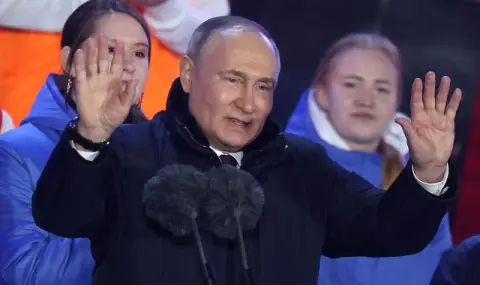On June 7, Russian President Vladimir Putin formulated a theory of victory in Ukraine that suggests Russian forces will be able to continue a gradual advance indefinitely, prevent Ukraine to conduct successful counter-offensive operations of operational significance and win the war of attrition against Ukrainian forces.
This is stated in the daily analysis of the Institute for the Study of War.
Putin's theory of victory is based on Russia's ability to withstand and overcome the West's promised security assistance to Ukraine and Ukraine's efforts to mobilize more of its economy and population for military action, indicating that Putin likely appreciates that Russian forces will be able to use their advantages in manpower and materiel to overwhelm Ukrainian forces.
Putin's theory of victory rests on the critical assumption that the West will abandon Ukraine to a Russian victory either of its own accord or in response to Russian efforts to persuade the West to do so, and it is far from clear that the West will .
Putin indirectly indicated that Ukrainian strikes on Russian territory with weapons provided by the West did not cross a perceived Russian "red line" that would lead to Russian nuclear escalation.
During his speech at the St. Petersburg Economic Forum on June 7, Putin highlighted proposals to solve Russia's labor shortage problems.
Putin has tried to paint Russia's economic problems in a positive light, possibly to prepare Russian citizens to make more personal sacrifices while Russia maintains a protracted war in Ukraine at the expense of Russian citizens' standards.
Putin continued his efforts to portray Ukrainian President Volodymyr Zelensky as an illegitimate president and identified the Ukrainian Verkhovna Rada (parliament) as a legitimate actor with whom the Kremlin could negotiate instead of Zelensky.
Putin's recent statements are the latest in a series aimed at obfuscating the legitimacy of Zelensky's extended term by distorting the Ukrainian constitution and Ukrainian laws.
Putin also tried to introduce his children and the children of other high-ranking Russian officials in public at the St. Petersburg forum, presumably to set the stage for them to eventually occupy high and influential roles in the Russian government.
U.S. National Security Council Senior Director for Arms Control, Disarmament and Non-Proliferation Pranai Wadi said the U.S. has prepared a new nuclear weapons policy specifically to deter Russia, the People's Republic of China (PRC) , North Korea and Iran.
On June 7, the US Department of Defense (DoD) announced a package of measures to support the security of Ukraine in the amount of 225 million dollars.
French President Emmanuel Macron announced on June 6 that France will provide Ukraine with an unspecified number of Mirage 2000-5 fighter jets and equip and train a brigade of 4,500 Ukrainian soldiers.
On June 7, Russia's Supreme Court declared a defunct organization "extremist," consistent with previous ISW assessments that Russia is seeking to expand the legal definition of "extremism" to increasingly prosecute anti-war sentiments in the country.
The Kremlin continues to make efforts to destabilize the Balkans and to undo the 1995 Dayton Accords that ended the 1992-1995 war in Bosnia, possibly as part of a larger strategic effort to to divide and distract Europe.
